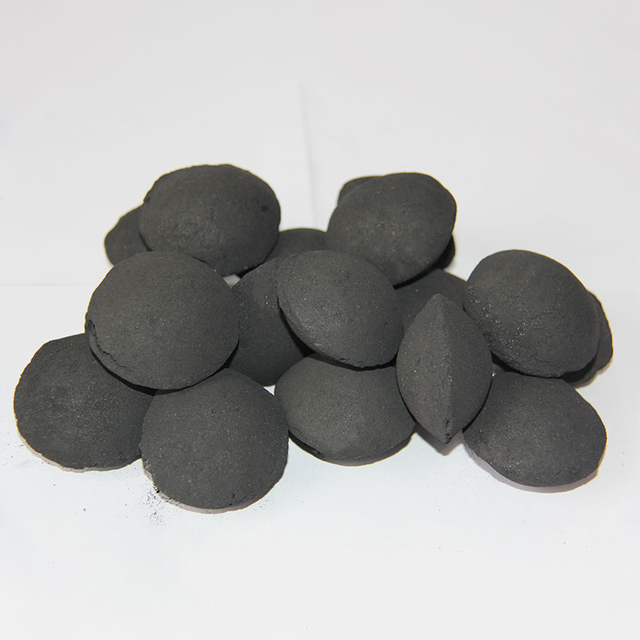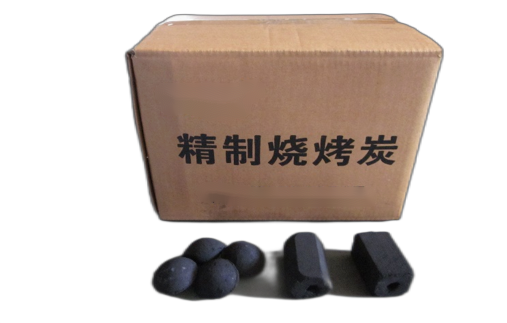
Is charcoal grilling worth the effort compared to gas? It’s a common debate among BBQ lovers. BBQ charcoal grilling is known for its rich smoky flavor and traditional grilling experience. But does it justify the extra time and effort?
In this article, we’ll explore both grilling methods and compare their benefits. You’ll learn the pros and cons of BBQ charcoal and gas grilling, and find out which method suits your cooking style best.
The BBQ Charcoal Experience
What Makes BBQ Charcoal Special?
When it comes to grilling, BBQ charcoal offers something that gas grills can’t quite match – the flavor. Charcoal gives your food that rich, smoky taste that many BBQ lovers crave. The flavor comes from the natural process of fat and juices dripping onto the coals, which then turn into smoke and infuse the food with its unique aroma.
There are two main types of BBQ charcoal:
Lump Charcoal: Made from natural wood, lump charcoal burns hotter and faster but gives an authentic wood-fired taste.
Briquettes: These are compressed pieces of charcoal dust mixed with other materials to create uniform shapes. They burn slower, providing longer cooking times.
Among these, Bamboo Charcoal is becoming increasingly popular due to its eco-friendly nature. Unlike traditional wood charcoal, Bamboo Charcoal burns cleanly, produces minimal ash, and offers a longer, more consistent burn time. If you’re looking for an eco-conscious option, Bamboo Charcoal is an excellent choice.
Pros of Charcoal Grilling
Unique Flavor: The smoky flavor charcoal imparts is unmatched. Many BBQ enthusiasts consider this the most important reason to choose charcoal over gas.
Versatility: Charcoal grilling allows for a variety of techniques, from direct high-heat searing to slow smoking. It’s perfect for cooking large cuts of meat or delicate items like fish.
Affordable: Charcoal grills are generally less expensive than gas grills, making them a more affordable option for those on a budget.
Cons of Charcoal Grilling
Longer Setup Time: Charcoal grills require more time to preheat, taking anywhere from 20 to 45 minutes depending on the amount of charcoal used.
Temperature Control: Unlike gas grills, charcoal grills don’t have precise temperature control. It requires more skill and experience to manage the heat, especially for beginners.
More Mess: After grilling, charcoal grills produce more ash and are messier to clean. They require more effort to maintain and dispose of used charcoal.
![Barbecue Charcoal Barbecue Charcoal]()
The Gas Grilling Experience
Why Choose Gas Grilling?
On the other hand, gas grills offer the ultimate convenience. They use propane or natural gas, which allows for quick and easy ignition. With just a press of a button, you’re ready to grill. Gas grills heat up much faster than charcoal grills, making them a great choice if you’re in a rush.
Gas grills also provide precise temperature control, which makes cooking delicate foods like fish or vegetables much easier. Plus, they tend to be easier to clean than charcoal grills, as they don’t produce ash and residue that can be a hassle to deal with.
Pros of Gas Grilling
Convenience: Gas grills are ready to cook in just 10-15 minutes, making them ideal for those who want a quick and easy grilling experience.
Precise Temperature Control: With adjustable burners, you can control the heat more accurately, ensuring even cooking.
Easier Cleanup: Gas grills are easier to clean compared to charcoal grills, as they don’t leave behind ash and residue.
Faster Cooking: Gas grills cook food faster due to the consistent and adjustable heat, which can save you time when grilling.
Cons of Gas Grilling
Less Smoky Flavor: While you can add wood chips to a gas grill to mimic the smoky flavor of charcoal, it’s never quite the same. Gas grilling doesn’t provide the rich, authentic smoky taste that many BBQ enthusiasts prefer.
Higher Initial Cost: Gas grills are usually more expensive than charcoal grills, both in terms of the initial purchase price and ongoing fuel costs (propane or natural gas).
Dependency on Fuel: Gas grills rely on propane or natural gas, which can be inconvenient if you run out during cooking. Additionally, the tank needs to be replaced or refilled regularly.
![Barbecue Charcoal Barbecue Charcoal]()
Bamboo Charcoal: The Eco-Friendly Choice
When it comes to BBQ charcoal, Bamboo Charcoal stands out for its sustainability. Bamboo grows rapidly and is a highly renewable resource, making it an eco-friendly alternative to traditional wood-based charcoal. It burns longer, hotter, and cleaner, producing minimal ash and smoke, making it an ideal option for those who care about both the environment and their grilling experience.
Bamboo Charcoal is also incredibly versatile. It can be used for all types of grilling, from high-heat searing to slow-smoking. Plus, it doesn’t impart any unpleasant aftertaste to your food, allowing the natural flavors to shine through. If you’re interested in an environmentally responsible BBQ option, Bamboo Charcoal is the way to go.
BBQ Charcoal vs. Gas Grilling: Which One is Worth the Effort?
Flavor vs. Convenience
The most significant factor in deciding between BBQ charcoal and gas grilling is often the flavor. Charcoal grilling imparts a distinctive smoky taste to your food, which is hard to replicate with gas. However, if you value speed and convenience, gas grills are the clear winner. They heat up quickly, are easier to clean, and offer precise temperature control.
If you’re looking for the authentic BBQ experience and don’t mind putting in a little more effort, charcoal grilling is worth the time. The process of lighting the coals and managing the fire can be rewarding, and it’s a great way to spend time outdoors with friends and family. Charcoal grilling is especially suitable for those who enjoy experimenting with different cooking techniques like smoking or searing.
Temperature Control vs. Versatility
Another key difference between BBQ charcoal and gas grilling is temperature control. Gas grills offer more precision in temperature regulation, which is perfect for cooking delicate foods. However, BBQ charcoal allows for more versatility. You can experiment with different heat zones and use techniques like indirect grilling or smoking, which aren’t as easy to achieve with gas.
Cost and Maintenance
When it comes to cost, BBQ charcoal grills are generally more affordable upfront than gas grills. However, gas grills have lower ongoing maintenance costs. While you need to replace charcoal regularly, gas grills only require occasional propane tank refills. Cleaning a gas grill is also quicker and easier compared to the mess left behind by BBQ charcoal grills.
![Barbecue Charcoal Barbecue Charcoal]()
Which Grill Should You Choose?
Ultimately, the decision comes down to what you value most. If you’re a purist who loves the smoky flavor and the hands-on experience of grilling, BBQ charcoal is worth the effort. It’s perfect for long, slow cooks or for creating that rich smoky flavor. However, if convenience, speed, and precise temperature control are more important to you, a gas grill may be the better option.
Consider your grilling needs, space, and lifestyle before making a decision. Whether you go for the traditional taste of BBQ charcoal or the convenience of a gas grill, both types can provide great cooking experiences.
Conclusion
To wrap things up, both BBQ charcoal and gas grilling have their advantages. If you’re after rich smoky flavors and don’t mind putting in a little more effort, BBQ charcoal is the way to go. If you prioritize convenience, speed, and precise temperature control, then a gas grill might be a better option. For those looking for a cleaner, eco-friendly grilling experience, check out our Smokeless Flammable Clean-burning Bamboo Barbecue Charcoal is the perfect solution for a long-lasting and eco-conscious BBQ.
FAQ
Q: Is BBQ charcoal better than gas grilling?
A: It depends on what you value more. BBQ charcoal offers a smoky flavor and more grilling versatility, while gas grilling is faster, easier to control, and more convenient.
Q: Does BBQ charcoal give food a smoky flavor?
A: Yes, BBQ charcoal imparts a rich smoky flavor to your food, especially when fat and juices drip onto the hot coals.
Q: Can I use Bamboo Charcoal for grilling?
A: Absolutely! Bamboo Charcoal is an excellent choice for grilling. It’s clean-burning, eco-friendly, and provides long-lasting heat for your BBQ.
Q: Is gas grilling more expensive than charcoal grilling?
A: Gas grills typically have a higher initial cost and need a propane tank, but they may save money over time with less fuel cost.
Q: Can I use a gas grill for slow cooking like I can with charcoal?
A: Gas grills are less versatile for slow cooking or smoking. If you enjoy low-and-slow BBQ, BBQ charcoal is a better option.
















